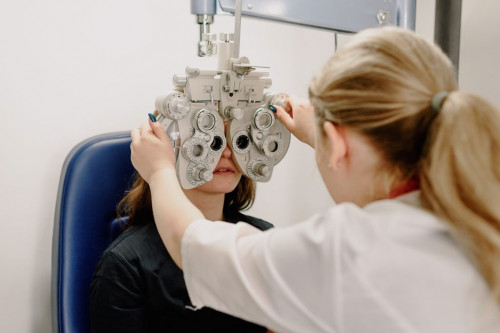Jakarta: Cataract is one of the main causes blindness for those who are more than 40 years old. But sometimes, there are still many who do not know the symptoms of cataracts.
Cataracts are cloudy or opaque areas on the crystalline lens of the eye that develop over time. Although quite common, many cases of cataracts are not treated until they get worse.
To find out whether you have cataracts or not, before it gets worse. The following are some of the symptoms of cataracts to watch out for:
1. Blurred or cloudy vision
“Blurred vision is a major symptom of cataracts,” says Joseph Fishkin, MD, a comprehensive ophthalmologist and cataract surgeon.
Blurred vision can be caused by a variety of factors, but as cataracts get worse, your vision will become blurry. Blurred vision can also occur due to glaucoma, it is very important to consult an ophthalmologist.
2. Decreased color perception
Due to problems with vision, colors will also look less clear and will even fade over time. The white color can appear to be slightly yellowish, for example.
“When a person develops cataracts, there is a faded or yellowing of the color, which can sometimes be felt,” says Michael Nordlund, MD of the Cincinnati Eye Institute.
3. Sensitive to light or something sparkling
Lights or light and even sunlight can be enemies when someone has cataracts. Because cataracts scatter a lot of light that enters the eye, ophthalmologists report that this symptom will be very common.
“As a cataract develops, light doesn’t have a clear path to the back of the eye, and it becomes increasingly difficult for a person to see clearly,” says James Schumer, MD, an ophthalmologist.
4. Difficulty driving at night
Because cataracts make it difficult to balance the contrast between dark and light from car headlights, most patients with cataracts have difficulty driving at night.
“If the big lights and bright streetlights are giving you a headache, you may need to see an eye doctor,” advises Shoshana Ungerleider, MD, an internist at California Pacific Medical Center Sutter Health.
5. Difficulty reading small letters
Difficulty reading small letters, could be a sign you need reading glasses. But if that doesn’t help, it could be caused by cataracts.
Scott MacRae, MD, ophthalmologist and chair of the Public Health Committee, points out that blurred vision and difficulty reading long distance text can also be signs of cataracts. When you read, cataracts make writing very blurry and the sharpness of the eyes will disappear.
(FIR)
– .


